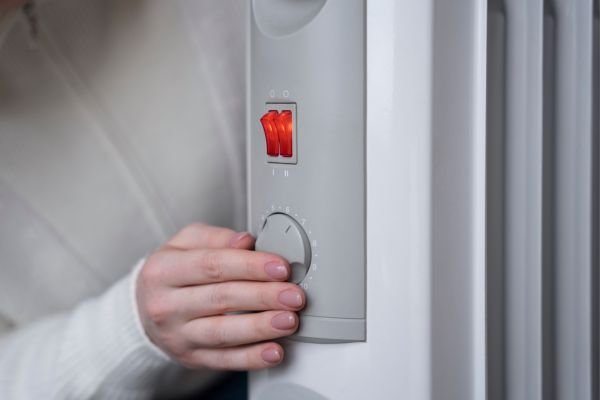Most homeowners don’t think about their water heater—until the water supply is suddenly cut off. Maybe you’re facing plumbing repairs, a water main break, or you’re just heading out on vacation. This raises an important question: should you turn off your water heater when the water is off?
The answer isn’t always black and white—it depends on the type of water heater you have, how long the water will be off, and whether you’re worried about energy waste, safety, or equipment damage.
Failing to handle it correctly can lead to costly repairs, especially if your heater overheats when there’s no water inside. On the flip side, shutting it off unnecessarily can be inconvenient and even slow down your hot water recovery when you turn it back on.
How a Water Heater Works
To understand why the question matters, you first need to know how these appliances operate.
Electric Water Heater Basics
An electric water heater uses one or two heating elements inside the tank. When the thermostat senses the water temperature has dropped below the set point, it sends electricity to the elements, heating the water.
If the tank is empty or partially empty (because the water supply is off), those heating elements can overheat and burn out quickly—often within minutes.

Gas Water Heater Basics
A gas water heater uses a burner at the bottom of the tank. The thermostat controls a gas valve, allowing the burner to heat water through a flue in the center of the tank.
Gas heaters are a bit more forgiving than electric ones, but if there’s no water in the tank, the intense heat can warp or crack the tank lining.
Why You Might Need to Shut It Off
There are a few reasons why turning off your water heater when the water supply is cut might be a good idea.
READ MORE: How to Remove Sulfur Smell from Hot Water Heater
1. Risk of Overheating and Damage
Heating elements or burners are designed to heat water—not air. Without water in the tank, they can quickly overheat and cause:
- Burnt-out electric elements
- Warped tank lining
- Cracked internal components
2. Preventing Energy Waste
Even if your heater does not run dry, there is no electricity or gas while keeping it away or when there is no water supply. Closing it saves utility bills.
3. Safety During Maintenance or Absence
If you’re having plumbing work done or you’re leaving home for an extended time, shutting off the heater adds an extra layer of safety—reducing the risk of leaks, bursts, or malfunctions while no one’s around.
When It’s Absolutely Necessary to Turn Off the Heater
Certain situations call for shutting off your water heater without hesitation.
Extended Vacations
If you’re going to be away for more than a few days, it makes sense to shut it off—or at least switch to “vacation mode” if your model has that setting.
Major Plumbing Repairs
If your plumber shuts off the water for hours (or days) during major repairs, turning off the water heater prevents overheating and damage.
Water Supply Disruptions Lasting More Than a Day
In emergencies like a broken water main or drought restrictions, keeping the heater on while the tank is dry is a recipe for costly repairs.
When You Can Leave It On Safely
While it’s often safer to switch it off, there are exceptions.
Short Water Shut-Offs
If the water will be off for only an hour or two—like during minor plumbing fixes—there’s little risk of overheating. Your tank will stay full, and the heater will cycle normally.
Automatic Safety Features
Modern heaters often have built-in safety mechanisms:
- Thermostat cut-offs
- Dry-fire protection (for electric models)
- Overheat sensors
If your heater has these, the risk is lower, but it’s still a good habit to shut it off during longer outages.
READ MORE: How Often to Flush a Water Heater
How to Safely Turn Off Your Water Heater
If you’ve decided to shut it off, doing it the right way matters. The process is slightly different for electric and gas units.
Electric Water Heater
- Turn Off the Breaker — Locate your home’s electrical panel and switch off the breaker labeled for the water heater.
- Shut Off the Cold Water Supply — This prevents new water from entering while repairs or outages occur.
- Drain if Necessary — For extended absences, draining the tank helps avoid sediment settling and freezing in cold climates.
Gas Water Heater
- Turn the Gas Control Knob to “Pilot” or “Off” — This stops the burner from firing.
- Close the Cold Water Supply Valve — Same as for electric models.
- Consider Shutting Off the Gas Supply — If you’ll be away for weeks, this is an added safety measure.
How to Turn It Back On After an Outage
Once water service is restored, you shouldn’t just flip it on immediately.
- Check That the Tank Is Full — Open a hot water faucet in the house and let it run until all air bubbles stop.
- Inspect for Leaks — Look around the base, connections, and relief valve.
- Restore Power or Gas — Switch the breaker back on for electric or turn the gas control to “On” for gas models.
- Allow Heating Time — Most tanks need 30–60 minutes to reheat fully.
The Impact on Energy Bills
Shutting off your water heater during outages or vacations can reduce standby energy losses.
Standby loss is the heat your tank loses even when you’re not using hot water, which forces the heater to cycle on and off to maintain temperature.
- Electric heaters: Save $5–$10 per month during downtime
- Gas heaters: Slightly less savings, but still worth it for long absences
However, frequent shut-offs for very short water outages may not yield much savings and can be more of a hassle than a benefit.
Potential Risks of Leaving It On
If you choose to leave your water heater running when water is off, here are the possible downsides:
- Dry-Fire Damage — Electric elements can burn out in minutes if the tank runs empty.
- Tank Damage — Gas heat can cause expansion cracks without water to absorb the heat.
- Scalding Risk — If pressure builds and safety valves fail, dangerously hot water could be released when supply returns.
- Higher Bills — Paying for energy when there’s no usable water.
READ MORE: How to Drain an Electric Water Heater
Tips for Homeowners During Water Shut-Offs
- Know Your Heater’s Features — Check the manual for vacation or eco-modes.
- Plan for Emergencies — Keep a wrench and flashlight handy near your water heater.
- Label Breakers and Valves — In an urgent situation, you don’t want to guess which switch to flip.
- Consider a Tankless System — These only heat water on demand, so you don’t have to worry about overheating during outages.
Conclusion
Whether you should turn off your water heater when the water is off depends on how long the outage will last, the type of heater you own, and your personal comfort with risk and energy savings.
For short outages, it’s usually fine to leave it on—especially if your heater has safety features. But for extended shut-offs, plumbing work, or vacations, turning it off can protect your equipment, lower your bills, and give you peace of mind.
A few minutes spent powering it down is far better than facing an expensive replacement due to dry-firing or overheating.
FAQs
1. Can leaving my water heater on with no water damage it?
Yes. Electric elements can burn, and the gas tanks can crack when heated without water.
2. How long can I safely leave my water heater on during an outage?
If the outage is less than two hours and the tank is filled, you are generally safe.
3. What’s “vacation mode” on a water heater?
It’s a low-temperature setting that keeps water warm enough to prevent freezing while reducing energy use.
4. Do tankless water heaters need to be turned off when water is off?
Not usually—they only run when water flows, but you can shut off power for extra safety.
5. Should I drain my water heater every time I turn it off?
Not for short outages—only for long absences or if you plan maintenance.




